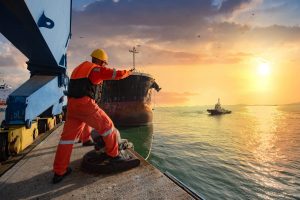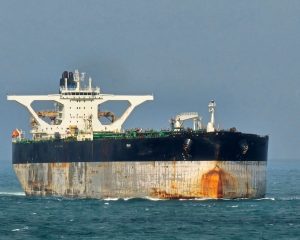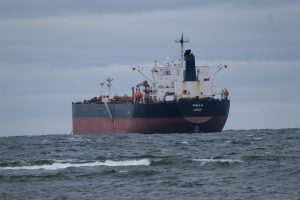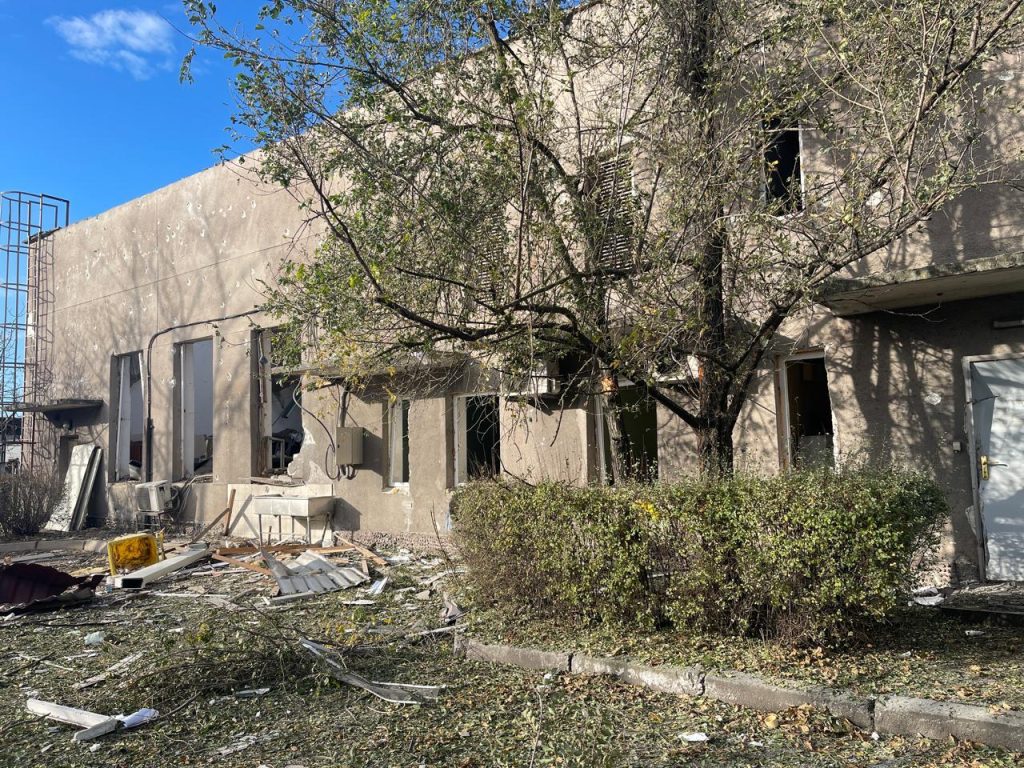Safe Course: How Future Seafarers Are Taught to Protect Themselves from Human Trafficking
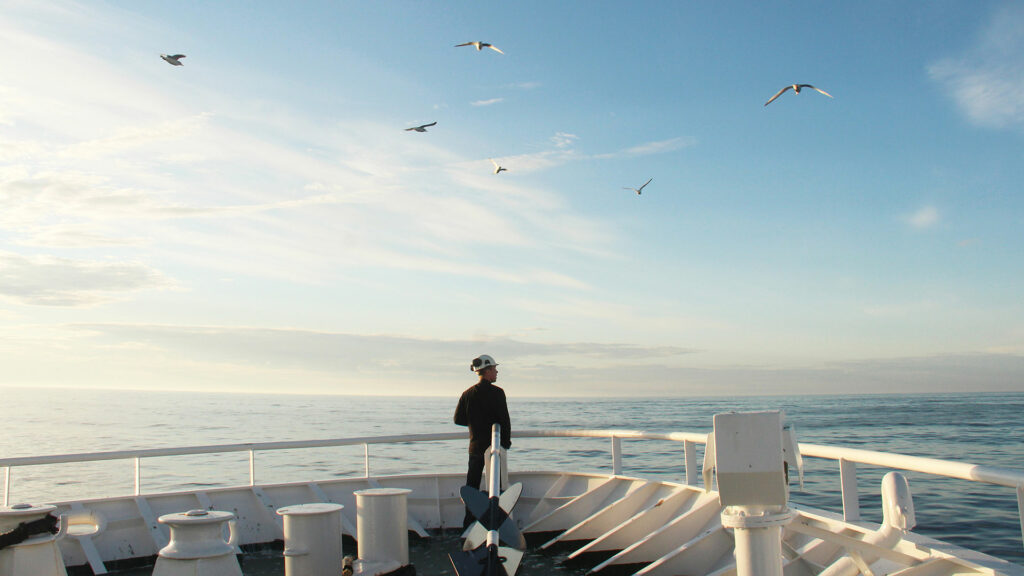
Despite the challenges posed by a full-scale invasion, Ukraine remains a leading maritime power. Every year, thousands of Ukrainian seafarers set sail, sign contracts with foreign companies, and work under various flags. Along with the prospects of professional growth, they face risks such as fraud, labor exploitation, and human trafficking.
To minimize these risks, the Danube Institute of the National University “Odesa Maritime Academy” in the Odessa region has been implementing a unique program of practical training on combating human trafficking for the third year in a row. The program is developed and implemented by experts from the Charitable Foundation “Caritas Odesa UGCC”.
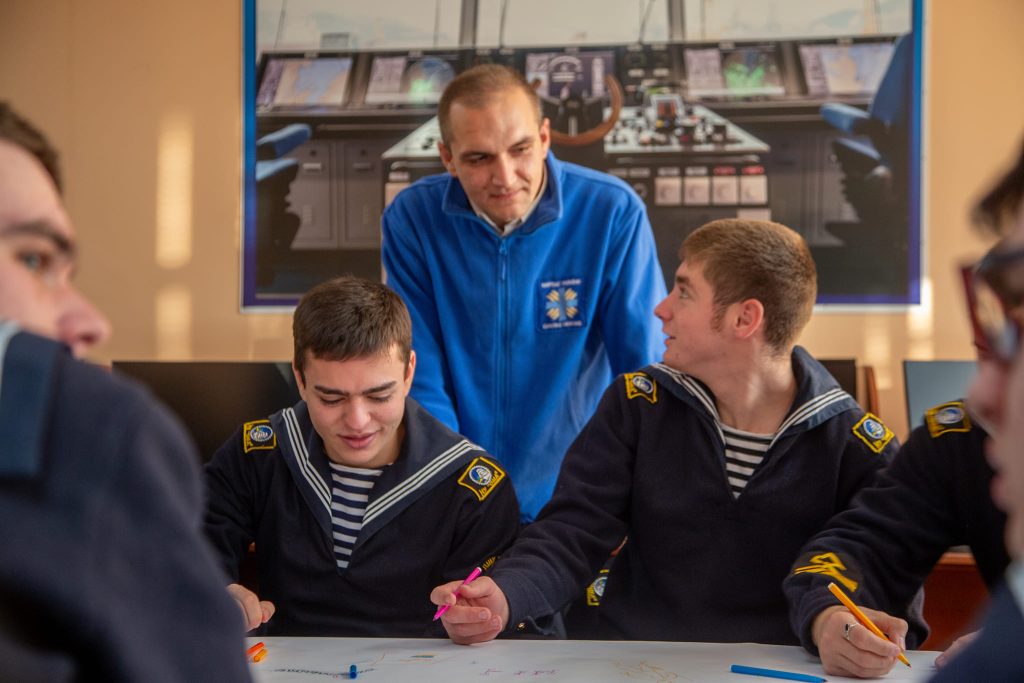
What is human trafficking and how relevant is this problem today?
Human trafficking, or slavery, remains one of the most serious modern crimes. If in the past the presence of slaves could be considered a reason for pride, today it is a reason for criminal liability in most countries of the world. Despite the strictness of the laws, the number of victims remains high. According to the International Organization for Migration, over the years of independence, more than 300 thousand Ukrainians have become victims of human trafficking. In 2024 alone, the National Service Service granted the status of victims of this crime to 182 people, which is 64 more than in 2023 (you can view the statistics here).
The essence of human trafficking is defined by Article 149 of the Criminal Code of Ukraine: it is “the implementation of an illegal transaction, the object of which is a person”. The crime can take various forms – from sexual and labor exploitation to forced begging, organ removal or involvement in criminal activity. The most vulnerable remain those who seek work, especially abroad, or who accept dubious offers without formal documentation.
Human trafficking is always characterized by three key elements: act, means and purpose. The act includes the recruitment, transportation, transfer or receipt of a person; the means determines how this is done – by coercion, deception, blackmail or abuse of power; and the purpose is to use the victim for exploitation, which can take the form of labor or sexual exploitation, forced begging, organ removal or involvement in criminal activities. The combination of these three components allows us to determine whether human trafficking has occurred and is the basis for prevention and protection of potential victims.
The profession of seafarer requires special attention. Working on foreign ships opens up career prospects, but at the same time creates risks of becoming a victim of fraud or labor exploitation. These risks have increased since the start of the full-scale invasion in 2022. Some seafarers were unable to return home due to port blockades, while others were forced to seek new contracts in uncertain circumstances. In addition, mobilization and a travel ban for men of working age have limited legal employment opportunities, increasing the risk of fraud.
Many foreign shipping companies continue to seek Ukrainian seafarers, often through intermediaries whose legality is difficult to verify. This makes seafarers particularly vulnerable to human rights violations and labor exploitation.
Therefore, the prevention and protection of seafarers from human trafficking remains a priority both at the level of state policy and through educational and awareness-raising programs aimed at future.
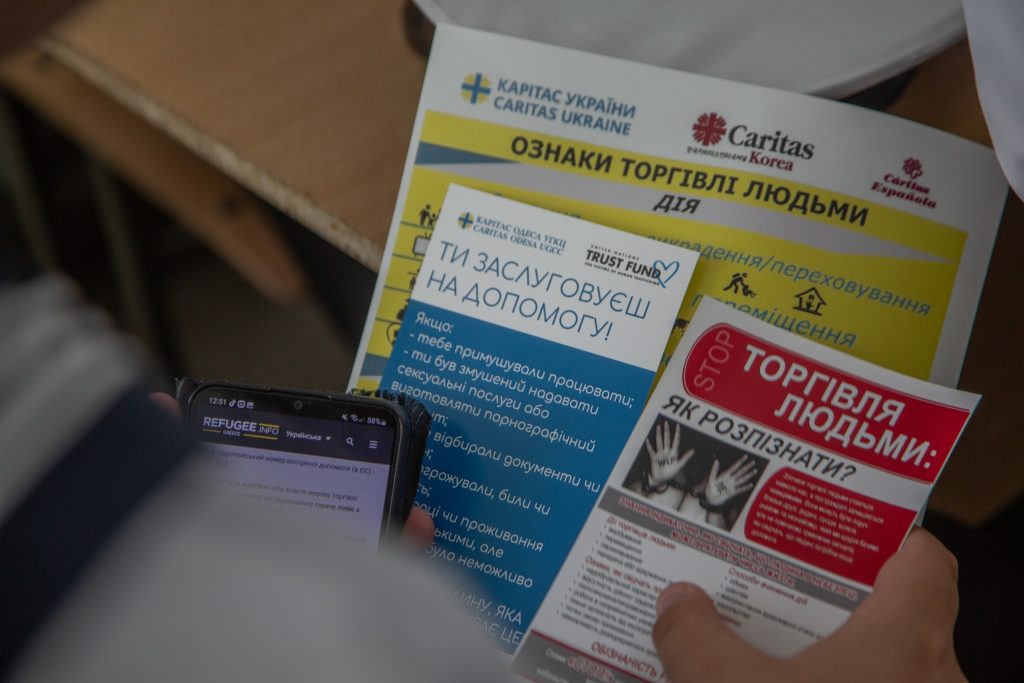
Training of seafarers in Ukraine: is attention paid to combating human trafficking?
The professional training of Ukrainian seafarers has traditionally focused on the technical and professional aspects of work at sea. The curricula of maritime institutions are focused on ship navigation, ship mechanics, navigation, safety at sea and other technical disciplines. At the same time, the issues of combating human trafficking and protecting the rights of seafarers are not always integrated into these programs.
The state educational standards approved by the Ministry of Education and Science of Ukraine do not provide for separate requirements for including the topic of human trafficking in the curricula of maritime specialties. The absence of regulatory acts that would oblige educational institutions to cover this topic leads to the fact that the preparation of seafarers for real risks on a voyage remains incomplete. As a result, most maritime educational institutions do not apply a systematic approach to the formation of self-defense skills and awareness of labor exploitation.
At the same time, some initiatives are implemented through cooperation with non-governmental organizations that conduct training and educational activities for cadets. However, such activities are more often one-time and are not integrated into the official curriculum.
The situation indicates the need to develop and implement training modules and systematic training on combating human trafficking. Their integration into official programs of maritime specialties will ensure comprehensive training of future seafarers for modern risks in international employment practice.
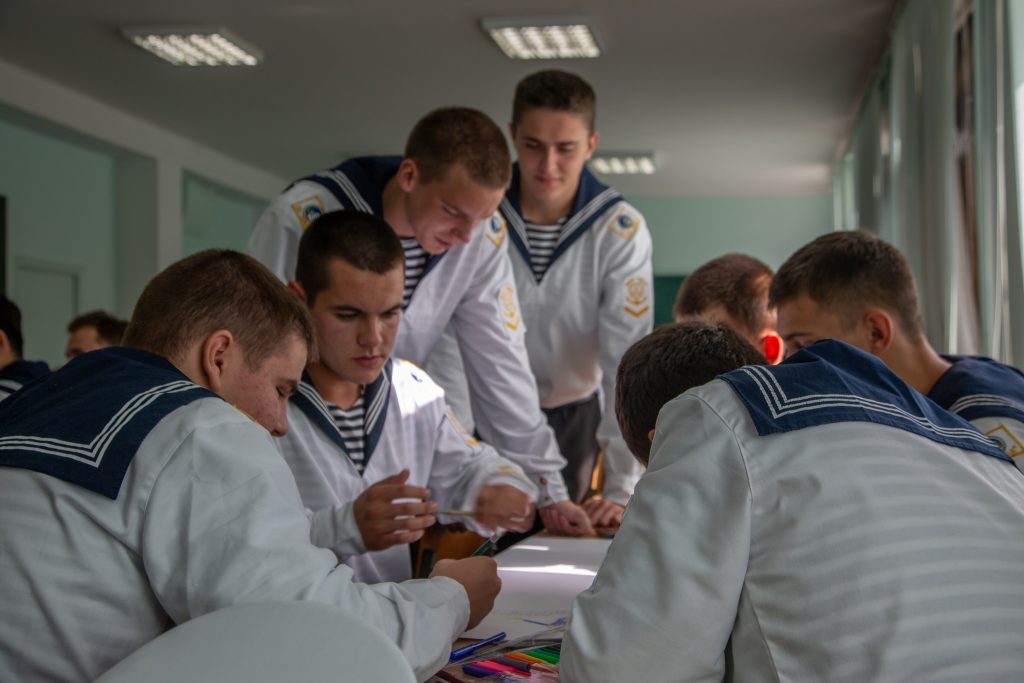
Experience of the Danube Institute of the National University of Moldova “OMA”
Analysis of the situation with the training of seafarers in Ukraine shows that the lack of systematic training on combating human trafficking creates significant risks for future specialists in the maritime complex. That is why the experience of the Danube Institute of the National University “Odesa Maritime Academy” is especially valuable, where since 2023, thanks to agreements with the Charitable Foundation “Caritas Odesa UGCC”, regular trainings for cadets have been launched. They are aimed at raising awareness of the risks of exploitation and developing safe behavior skills during employment abroad.
The first cycle of trainings in 2023 was held on the eve of the European Day against Trafficking in Human Beings on October 18. The foundation’s specialists, within the framework of a project supported by the French Embassy in Vienna, conducted training for first-year cadets of the Danube Institute of the National University “OMA”. The training materials were adapted to the maritime specifics of the institution: they took into account the larger number of documents for crew members, frequent travel, and the participation of the intermediate link (crewing) in the employment process.
“This was an interesting challenge for us: we work with young people who are already at risk because they are looking for opportunities to earn money, and at the same time, they are future specialists in a narrow field with their own specifics. It was important for us to provide practically useful advice specifically for this profession,” says Yuriy Berlinsky, project manager of the Charitable Foundation “Caritas Odesa UGCC”.
After the successful first cycle, the institute’s administration agreed to repeat the trainings for new first-year students in 2024 and 2025, which created the basis for a systematic approach.
Each training combines theoretical and practical parts. The theoretical part involves interactive lectures on the essence of human trafficking, its main types and components of the crime, using depersonalized stories of real victims. The practical part includes working out scenarios: from visiting the crew and signing the contract to the first day on the ship with the necessary documentation. Cadets are helped to draw up individual safety plans and contact maps for seeking help.
“It is important for our institute to educate not only highly qualified specialists in the maritime complex, but also conscious, informed and socially responsible citizens. That is why such trainings have been held for first-year applicants for the third year in a row,” the administration of the Danube Institute noted.
The experience of cooperation between the Danube Institute of the National University of Ukraine “OMA” and the Charitable Foundation “Caritas Odesa UGCC” demonstrates that even in narrow specialties of education it is possible to integrate training in combating human trafficking, making the training of future seafarers comprehensive and focused on the real challenges of modern times.
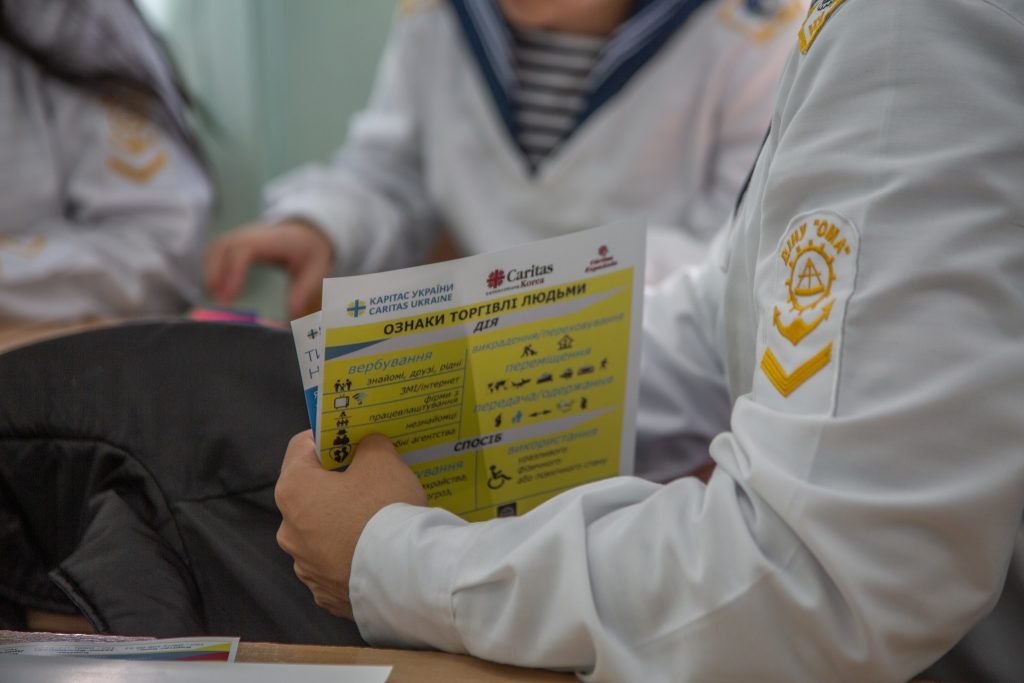
What should current seafarers pay attention to and where to turn for help?
For working seafarers, the issue of safety and prevention of human trafficking is extremely relevant. Risks arise not only on board a ship, but also in the process of finding a job and organizing trips abroad. In many cases, seafarers come into contact with employers or intermediary agencies without having the opportunity to check their reputation or the legality of the offers. One should be especially wary of requests to pay money in advance for “contract execution”, “registration in the database” or “document confirmation” – such actions are often signs of fraud and potential exploitation.
When concluding a contract, it is important to carefully check the conditions, the availability of official documents, guarantees and contacts of the employer company. Even experienced seafarers sometimes face unforeseen risks due to changes in legislation or the specifics of work on certain ships. Attention to detail and knowledge of one’s rights remain key tools for protection.
Awareness of available channels of assistance is equally important. In cases of dubious offers or the threat of exploitation, seafarers can contact state authorities, specialized hotlines and international organizations. One of the main resources is the National Anti-Trafficking Hotline – 527, where you can get, in particular, free advice on employment and travel. Support from colleagues and trade union organizations also plays an important role: sharing experience and warning about potential risks significantly reduces the likelihood of getting into a dangerous situation.
If a negative situation cannot be avoided, the seafarer can take advantage of reintegration and support programs, for example, at the Charitable Foundation “Caritas Odesa UGCC”, where confidential consultations are available by calling 095 295 33 30.
Thus, the protection of a seafarer from human trafficking is based on a combination of attentiveness, knowledge of one’s own rights and access to help. Providing this knowledge in professional educational institutions is a key element of a comprehensive approach that allows even an experienced professional to remain confident and secure in the employment process, while traveling, and in everyday professional activities.

